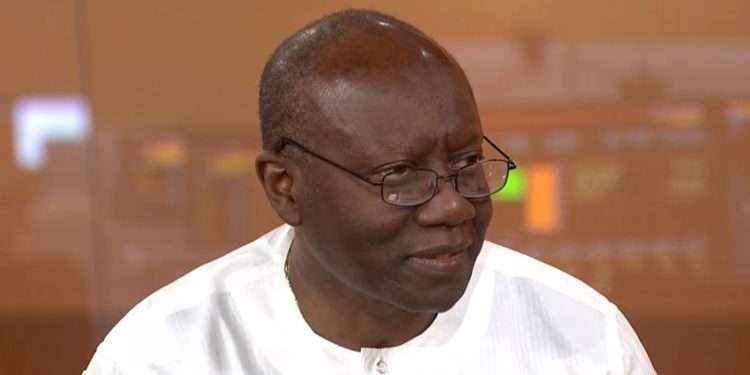Finance Minister commits to zero financing of budget by Central Bank
The BoG has already indicated its commitment to the zero financing policy, but recently disclosed that it was forced to finance the 2022 budget by releasing some funds to pay maturing bonds. The Bank argued that failure to do so would have had serious consequences for the economy. This revelation has added to the concerns raised by analysts, who fear that the zero financing policy may not be sustainable in the long run.
Ghana’s Finance Minister, Ken Ofori-Atta, has pledged the government’s full commitment to a strict zero financing policy of the budget by the Bank of Ghana (BoG). Mr. Ofori-Atta made the announcement during the Annual World Bank Spring Meetings in Washington DC, where he also disclosed that the Finance Ministry would sign a Memorandum of Understanding with the BoG in the coming weeks to give legal backing to the move after parliament’s approval.
The zero financing policy is aimed at containing Ghana’s rising budget deficit, which has become a major concern for the country’s economic stability. However, some analysts have raised concerns that a strict enforcement of the policy may have negative consequences for the economy. They argue that preventing the BoG from supporting government expenditure could lead to serious challenges, such as a cash crunch, that could adversely affect the country’s economic growth.
The BoG has already indicated its commitment to the zero financing policy, but recently disclosed that it was forced to finance the 2022 budget by releasing some funds to pay maturing bonds. The Bank argued that failure to do so would have had serious consequences for the economy. This revelation has added to the concerns raised by analysts, who fear that the zero financing policy may not be sustainable in the long run.
Despite the concerns, Mr. Ofori-Atta maintained that the zero financing policy was a constitutional requirement that the government must work towards. He assured the public that the Finance Ministry was fully committed to ensuring that the policy was enforced in a manner that would not negatively impact the economy.
In addition to the zero financing policy, Mr. Ofori-Atta also announced that the government was willing to review tax levels and rates in Ghana after achieving economic stability. He reiterated the government’s commitment to turning around the economy and stated that taxes were necessary to achieve this goal. However, he also acknowledged that tax reviews would be necessary from time to time and that the government would not shy away from this responsibility.
Ghana’s zero financing policy has attracted both support and criticism. While the policy is aimed at addressing the country’s rising budget deficit, concerns have been raised about its sustainability and potential negative impact on the economy. Nevertheless, the government remains committed to enforcing the policy and has assured the public that it will do so in a responsible manner that takes into consideration the country’s economic wellbeing.
Source: norvanreports.com


